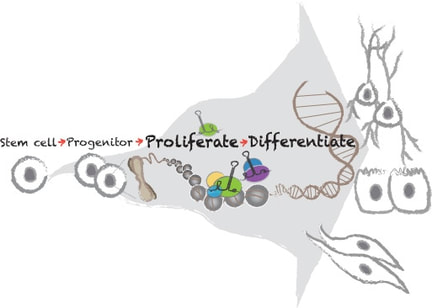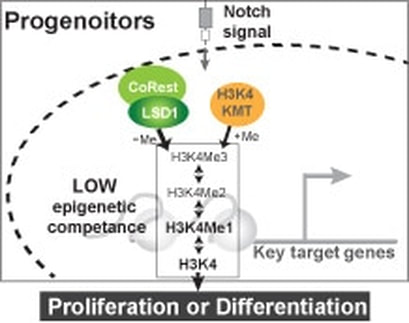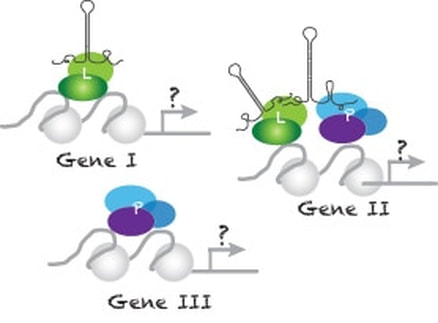Updates & News
- 2024/05/11 Congratulations to Tzu-Ling Shao (邵姿菱) for winning award on the 2024 NYCU College of Life Sciences Graduate Student Poster Competition (Honorable Mention).
- 2024/05/11 Congratulations to Rui-Tang Ting (丁瑞騰) for winning award on the 2024 NYCU College of Life Sciences Graduate Student Poster Competition (Honorable Mention).
- 2024/05/11 Congratulations to Yang-Hsuan Ou (歐陽宣) for winning 1st place Award on the 2024 NYCU College of Life Sciences Undergraduate Student Poster Competition .
- 2024/04/15 New lab paper published on iSCIENCE: "Protein degradation of Lysine-specific demethylase 1 is mediated by Bre1 yet opposed by Lsd1-interacting lncRNAs during fly follicle development."
- 2023/07/19 Congratulations to Ming-Chia Lee (李敏嘉) for receiving SDB International Faculty Scholarship (82nd Annual Meeting of Society for Developmental Biology) .
- 2023/06/7 Congratulations to Tzu-Ling Shao (邵姿菱) for winning 1st place Award on the 2023 departmental poster competition (Department of Life Sciences and Institute of Genome Sciences).
- 2023/5/22 Congratulations to Ming-Chia Lee (李敏嘉) for receiving the Undergraduate Faculty Teaching Award from College of Life Sciences at National Yang Ming Chi Tung University.
- 2022/09/16 Congratulations to Tzu-Ling Shao (邵姿菱) for winning 1st place Award on the 2022 departmental poster competition (Department of Life Sciences and Institute of Genome Sciences).
- 2022/09/16 Congratulations to Rui-Tang Ting (丁瑞騰) for winning Honorable Mention Award on the 2022 departmental poster competition (Department of Life Sciences and Institute of Genome Sciences).
- 2022/08/30 New lab paper published on Cell Reports: "Identification of Lsd1-interacting non-coding RNAs as regulators of fly oogenesis."
- 2022/08/24 Congratulations to Tzu-Ling Shao (邵姿菱) for winning Honorable Mention Award in the 2022 International Conference of Taiwanese Society of Developmental (TSDB) poster competition.
- 2022/04/20 Congratulations to Patty Pung (彭琦) for winning Award on the Departmental Student Presentation Competition (Department of Life Sciences and Institute of Genome Sciences).
- 2021/10/01 Congratulations to Chun-Ting Lin (林君庭) for winning Award on the Departmental Student Presentation Competition (Department of Life Sciences and Institute of Genome Sciences).
- 2018/07/01 Congratulations to Ming-Chia Lee (李敏嘉) for receiving SDB International Faculty Scholarship (77th Annual Meeting of Society for Developmental Biology) .
Our Research
Unfold the epigenetic roadmap that directs cell differentiationA precise control over progenitor proliferation is essential for maintaining tissue homeostasis. While precocious differentiation compromises tissue integrity, delayed onset of differentiation leads to tissue overgrowth and possibly tumorigenesis. Appearance of external cues is thought to determine the onset of differentiation. However, little is known about how progenitors become epigenetically competent to respond to induction cues in vivo. Here, our main research interest is to understand the establishment of epigenetic landscape that dictates progenitor competence to control the precise timing of transition from progenitors to differentiated cells.
|
Visualize epigenetic plasticity in vivoDuring cell divisions, the transcription state of individual genes is epigenetically inherited so that the mother cell and the daughter cell share very similar transcriptome.
However, by examining if GFP expression is preserved during cell divisions, we use UAS-GAL4::GFP as an epigenetic timestamp. We discovered that the precursor cells (i.e., stem cells and progenitors) may initially allow less epigenetic inheritance to underlie their proliferative property. |
|
What are we working on now?
#1: Epigenetic machineries that control the proliferation & differentiation switch> Identify and investigate the key epigenetic machinery |
#2 Epigenetic regulations that carried out by proteins and beyond> Determine Non-coding RNAs and protein stability regulation |




